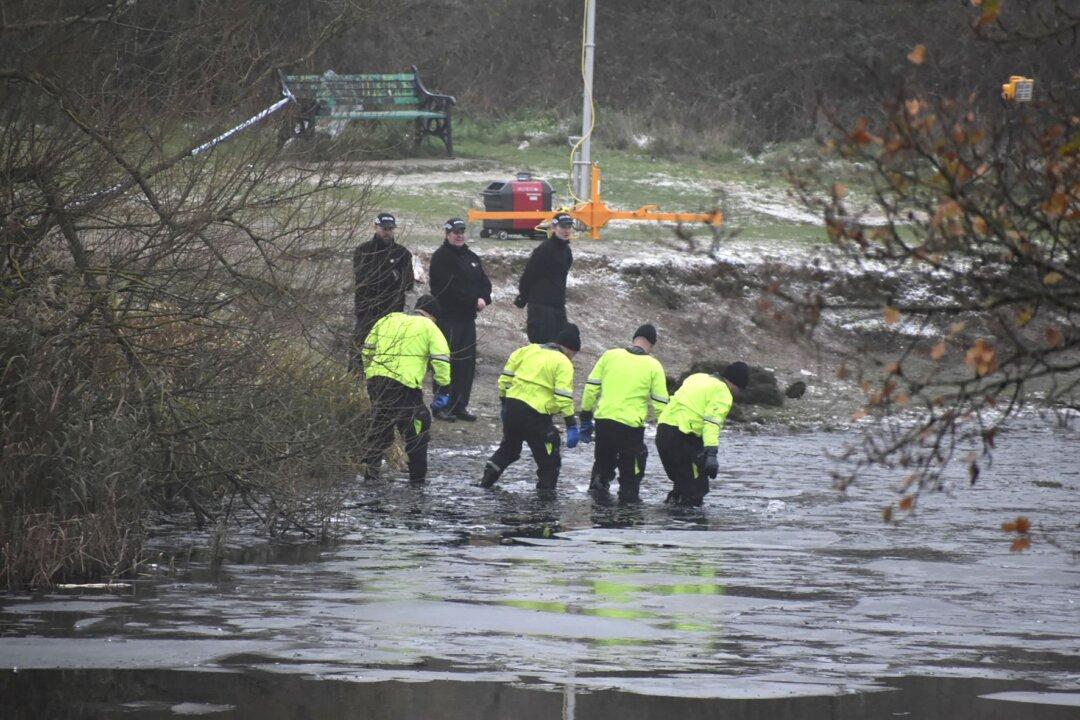Three boys have died, and a fourth is critically ill in hospital, after they fell through ice and into a lake at Babbs Mill Park in Solihull, near Birmingham, on Sunday afternoon.
The deaths of the boys, who were aged 8, 10, and 11, comes as Britain is gripped by wintry conditions, with more snow predicted for Tuesday and expected to cause difficulties for people travelling to and from work.





